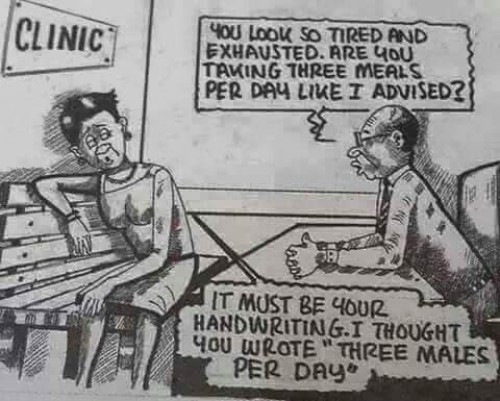
Dr Biodun Ogungbo, MBBS, FRCS, FRCSEd, MSc
I came across this, ‘A good doctor is the best a human being can be‘. How true? To be able to reduce misery and save lives is the most incredible feat good doctors achieve on a daily basis. Doctors have the enormous privilege of touching and changing lives. I know Jesus died a long time ago, but good doctors perform miracles every second of the day. It requires an awesome level of conscientiousness.
So, what makes a good doctor?
A cousin of mine rushed his father to the emergency room with acute retention of urine. The man could not pass urine due to obstruction caused by an enlarged prostate gland. A doctor came out, took one look at the old man and called the son aside. ‘Your father is dying, he said’. ‘You should go and buy a big cow to celebrate his long life’.
I asked him to remove his father to another hospital immediately. At the new hospital, the doctors asked the right questions, examined the patient and passed a urinary catheter. The patient felt immediate relieve, his blood pressure settled, he stopped sweating profusely and he suddenly found his voice. He lived for much longer and the family did not buy a cow!
There are many qualities that make a good doctor but humanity, curiosity and professionalism are the key values.
Humanity
Dr. Faith T. Fitzgerald, former dean of students at the University of California, Davis, School of Medicine, did a small study that showed medical students who were labelled as ‘caring’ by patients, spent more time relating to patients. They were interested in the patients as human beings rather than as objects.
Studies show that having a warm and accessible doctor not only makes you a more satisfied patient, it also has another important benefit: ‘When patients trust their physician, they are more likely to adhere to treatment plans and follow advice,’ writes physician Manoj Pawar in Family Practice Management. ‘If you're looking for a good physician, start by looking for a human being who cares about people.’ A good doctor must be able to treat all patients equally, regardless of their ethnicity, lifestyle choices or conduct. The job is to treat your patients, not to judge them.
A good doctor is not looking for a community that can support his needs rather a community that desperately need his or her attention. It is an altered mindset looking for who you can help with compassion and your expertise. This is different from many who work in our hospitals or areas where they hunger to get the most pay for the least amount of work. Such doctors often have little respect for people and are largely unsupportive when they are truly needed.
A good doctor is therefore first and foremost a human being who can relate to others as if they are family. Once you see your patients as an extension of your own humanity, you go that extra mile to do the best you can for them. The question that really great doctors often ask is, ‘What if this was my family?’Once you answer that question correctly, you would move mountains.
Curiosity
A good doctor has fine bedside manners and excellent communication skills. It is not enough to know your job and do it well, if you have terrible bedside manners and lack empathy. A doctor’s ability to explain, listen and empathize has a profound impact on a patient’s care. A good bedside manner is simply good medicine.
The best doctors always ask courteous questions, let people talk, and listen to them carefully. They give unbiased advice, let people participate actively in all decisions related to their health and health care, assess each situation carefully, and help whatever the situation.
Many patients tell us what is wrong with them and exactly where the problem is, in many situations. Usually, you might find that you have a rough idea of what is wrong with your patient within the first minute of their visit, but until you've dug deeper and got a real understanding of their situation, you will not be able to treat them to the best of your ability. Listening and hearing exactly right is therefore fundamental to making the right diagnosis. If you are distracted, you could miss vital clues.
Professionalism
This is of the utmost importance along with medical knowledge and skills. It is critical that you behave well and involves maintaining a professional distance from your patients. They need to feel safe in your company to disclose information at their discretion, and they need to be sure that anything they say will not leave your office. Doctor/patient confidentiality is extremely important being a fundamental strand of medical ethics.
If a patient feels they are being cared for by the right doctor who has taken an interest in their well-being, their body will suppress their awareness of pain and they will experience a faster recovery. And conversely, the stress of having a bad doctor who doesn't show an interest can actually prolong the patient's suffering.
There is a real need to train and test doctors in ‘interpersonal and communication skill’ in Nigeria. Therefore, the last Annual General Meeting of the Nigerian Medical Association (FCT branch) included a segment called, ‘Doctor, talk to me’. This was a communications skills program, which involved mock patient interviews and assessment from the actors role-playing in a clinic. ‘Doctor, talk to me’ is in facebook and on youtube.
Finally, the doctor should be a human being, happy, healthy, caring and competent. They should have a balanced life and care for themselves and their families too.
